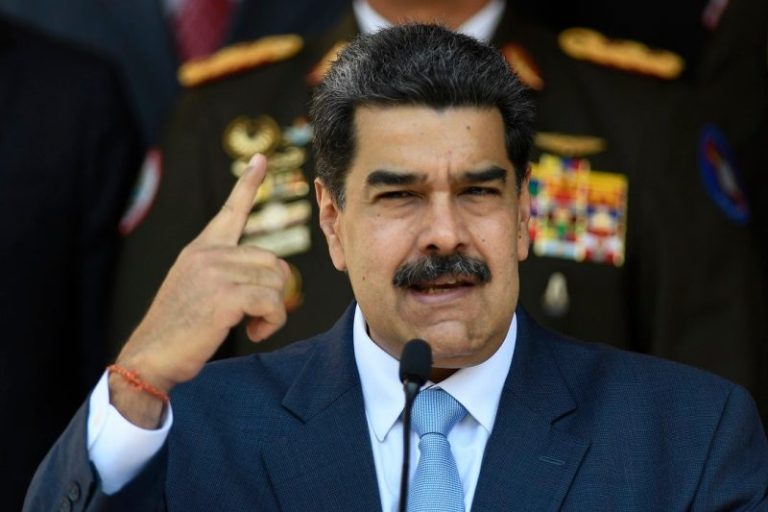President Biden is showing ‘outright hostility’ to the U.S. oil industry by turning to foreign countries — including adversaries — to supply America’s energy needs rather than domestic producers, according to experts and industry insiders.
The U.S. is on track to receive nearly 3 million barrels of crude oil from Venezuela this month, Reuters reported. That’s because oil producer Chevron is shipping more than 100,000 barrels per day of Venezuelan crude to the U.S. under a license from the Treasury Department.
Last year, the Biden administration authorized Chevron to expand production in Venezuela and to resume exports of Venezuelan oil. Venezuela, an OPEC member, has been under U.S. sanctions, with its oil frozen for the past several years, due to international outcry over the conduct of Venezuela’s socialist government.
Experts were quick to note that the U.S. turned outward to Venezuela, a country hostile to the U.S., rather than inward to domestic energy producers.
‘It’s really sad to see the way President Biden treats our domestic oil industry, while asking countries like Venezuela and Saudi Arabia to produce more oil,’ Robert Rapier, a chemical engineer with decades of experience in the energy industry, told Fox News Digital.
‘I have never understood this outright hostility to an industry that is critically important for U.S. manufacturing, transportation, and national security,’ he continued. ‘Instead of working with the oil industry, President Biden approaches them with outright hostility, making demands upon them and criticizing them for making profits.’
The surge in Venezuela oil to the U.S. appears to be part of a White House strategy months in the making.
Early last year, American officials went to Venezuela, a Russian ally and longtime U.S. foe, to open a dialogue with President Nicolas Maduro about easing sanctions so the country can sell its oil on the international market to combat rising prices amid Russia’s war in Ukraine.
Over the course of the year, the Biden administration offered Venezuela sanctions relief and ended up easing certain sanctions related to oil, giving Chevron a greenlight to import Venezuelan crude.
According to experts, the administration’s efforts to increase Venezuela’s oil experts really kicked into high gear over the summer, when Saudi Arabia rebuffed Biden’s efforts to get the country to increase the oil supply.
‘Unfortunately, when the Saudis stiff-armed the administration on production increases last summer, it left them with very few options for the type of crude many US refineries need — particularly with the rapid draws from the Strategic Petroleum Reserve,’ Tim Stewart, president of the U.S. Oil and Gas Association, told Fox News Digital. ‘So last fall, they turned to the Marxist regime for an assist.’
In October, the Organization of the Petroleum Exporting Countries (OPEC) and its non-member allies, a coalition known as OPEC+ led by Russia and Saudi Arabia, announced they were going to slash oil production by 2 million barrels a day, a move that observers feared would push up already high global energy prices.
The White House, which had been desperately lobbying OPEC+ members to vote against the proposed production cut, decried the decision.
Experts have argued OPEC+ has increased sway in part because Biden’s policies have limited U.S. domestic energy production. According to an analysis last year by economists Stephen Moore and Casey Mulligan for the Committee to Unleash Prosperity, the Biden administration’s policies have caused the U.S. to produce significantly less oil and gas during Biden’s presidency than it would have during a second term for former President Trump.
‘The U.S. would be producing between 2 and 3 million more barrels of oil a day and between 20 and 25 more billion cubic feet of natural gas under the Trump policies,’ the report states. ‘This translates into an economic loss — or tax on the American economy — of roughly $100 billion a year.’
By turning to Venezuela for oil, Biden may also be undermining his own climate and environmental agenda.
‘Venezuela has the dirtiest oil production in the world,’ said Stewart.
Last summer, the World Bank published data showing the U.S. has made great strides in reducing flaring, which is the burning of natural gas associated with oil extraction. Biden has said he wants to end the practice by 2030.
The U.S. has seen a 46% reduction in flaring intensity, the volume of gas flared per barrel of oil produced, over the past decade and last year was better than almost every country at limiting it, according to the World Bank data.
Venezuela, meanwhile, is ‘among the worst performers, with a flaring intensity 18 times higher than that of the U.S.,’ the Bank’s Global Gas Flaring Tracker Report found.
Frequent oil spills in Venezuela, which often aren’t cleaned up, are also causing serious environmental damage. Experts have highlighted Venezuela’s ‘unsafe and careless production practices’ of contaminated oil, which damages not only the environment but also the health of local communities.
Venezuela is allied with Russia, which has been a chief backer of Maduro’s regime and supported the Venezuelan national oil company PDVSA. Russia has a controlling stake in 40% of Venezuela’s operations in five different projects.
Venezuela also maintains close military ties with Iran and economic ties with China.
‘Every barrel of Venezuelan crude the administration imports into the U.S. just further props up the Maduro regime and indirectly funds Russia’s war in Ukraine,’ said Stewart. ‘Now that Venezuela is hosting the Iranian navy and has laid out a welcome mat for the [ruling Chinese Communist Party], the Biden administration is funding the four major U.S. foreign adversaries with one single and very bad energy policy decision. It is efficient but very wrong.’
‘The sad thing is,’ continued Stewart, ‘this administration treats its own oil and gas industry and our workers as greater enemies than Venezuela, Russia, Iran, or China.’
The White House didn’t respond to a request for comment for this story.

